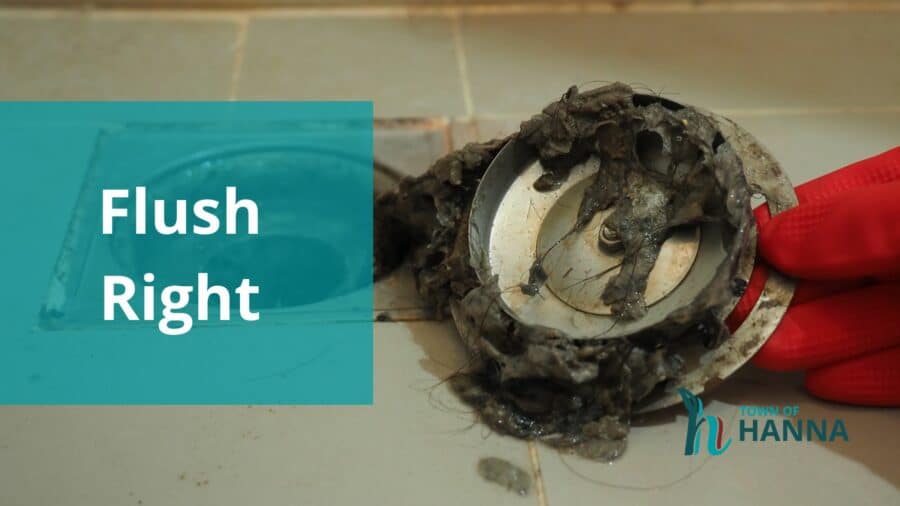
We often take for granted the convenience of modern plumbing systems. Flushing the toilet is a daily ritual, but have you ever thought about where it all goes? It’s a simple question with a big impact on our municipal sewage treatment systems.
Our toilets are designed to handle three things: human waste, toilet paper, and water. That’s it! To keep it simple, remember and teach your family to only flush the 3P’s – pee, poop and paper (toilet paper).
Don’t Rush to Flush
Here are some things that you should never flush and why:
- “Flushable” Products & Wipes: Even if they say “flushable” on the label, wipes do not break down like toilet paper. They can clog pipes and create costly problems.
- Paper Towels and Rags: Paper towels are thicker and tougher than toilet paper, and they don’t break down quickly. Throw them in the trash instead.
- Dental Floss, Hair & Cotton Swabs: These can easily tangle and wrap themselves around other items in the pipes and form clumps especially when mixed with soap scum and grease. These clumps can create blockages.
- Hygiene Products, Diapers & Condoms: Tampons, pads, and disposable diapers should never be flushed. They are meant to absorb moisture so they don’t break down in water and can expand and block pipes.
- Medications: Flushing old medications can harm aquatic life and our water supply. Properly dispose of them at a pharmacy.
- Grease and Oil: Pouring cooking oil or grease down the toilet can lead to nasty clogs in your pipes and in the sewage system. Instead, let it cool and solidify, then toss it in the trash.
- Litter: Kitty litter can absorb up to 15 times its weight. Even the so-claimed flushable cat litter brands will eventually cause clogs and backups. Not to mention, has anyone heard of the parasite called Toxoplasma?
A Simple Solution: Trash It, Don’t Flush It
In conclusion, the rule of thumb is simple: if it’s not the 3P’s; pee, poo or paper (human waste, toilet paper, or water), don’t flush it! Instead, toss it in the trash.
By being responsible with what we flush, we can reduce these problems and help to maintain an efficient and cost-effective sewage treatment system.

